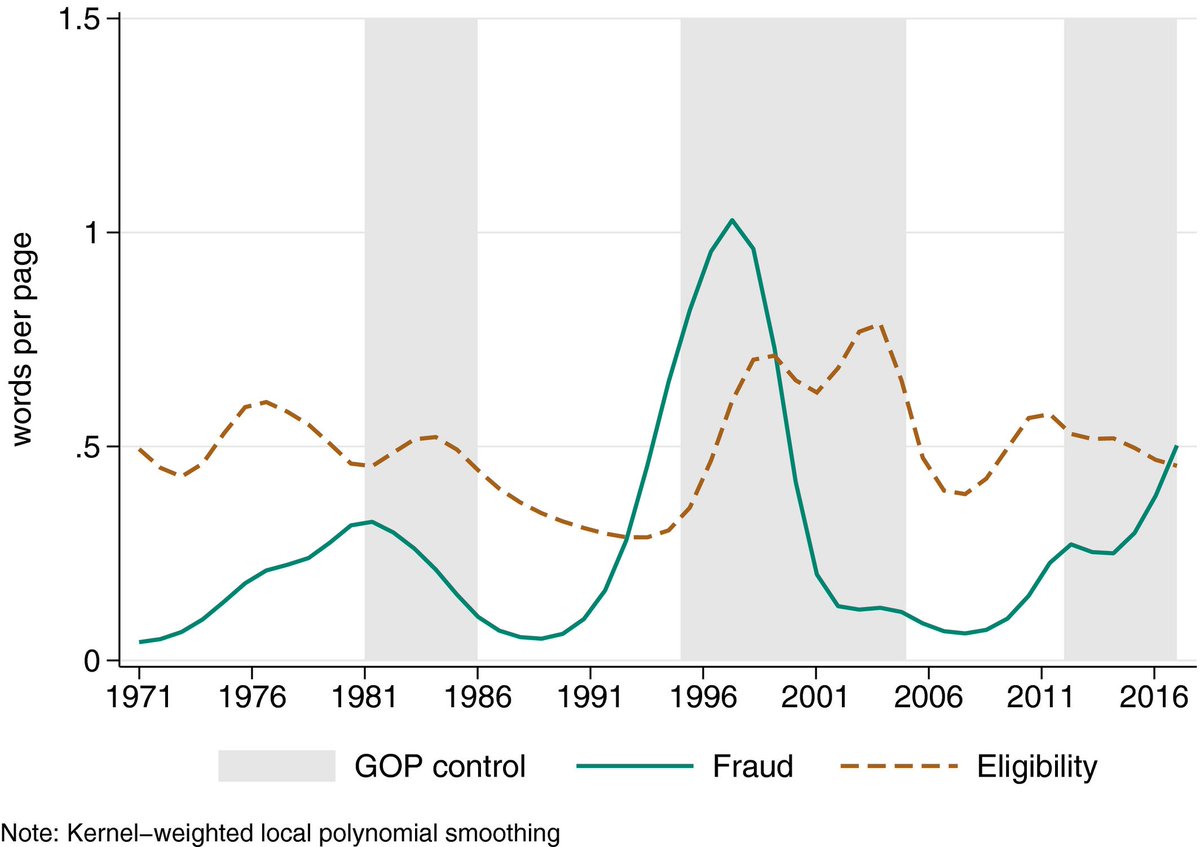What happens when the political foundations of public policies break down? I explore the process of policy regime decay in U.S. food and agriculture.1/8 @PSJ_Editor http://dx.doi.org/10.1111/psj.12420
Although the traditional bargain between nutrition and ag subsidies still holds, voting on the farm bill has become more partisan especially in the House. GOP senators are increasingly divided.2/8
A big factor in weakening the farm bill coalition is GOP opposition to SNAP. I find that attention in hearings to issues of fraud and eligibility for benefits is higher during GOP control.3/8
Attacks on SNAP put some GOP members in a bind between voting for subsidies and showing their conservative bona fides. GOP Sens/Reps from states/districts with larger farm populations were less likely to support SNAP cuts in the 2018 Farm Bill.4/8
So, what holds the Farm Bill together? I speculate that the food industry is an important player in defending SNAP. I use lobbying reports to track increasing activity by the food industry and other groups on nutrition issues.5/8
Policy regime decay has implications for how we think about durability and change. The appearance of continuity can conceal an underlying process of decay, just as an otherwise stable structure may sit atop a rotting foundation.6/8
To offer a metaphor, decay resembles termites slowly eating away at the frame of a house. We only realize the damage when a strong wind knocks the structure down. 7/8
By developing the empirical markers of decay, scholars can trace the conditions that precede dramatic shifts in policy. Signs of decay should warn us that despite outward appearances things may be falling apart.8/8

 Read on Twitter
Read on Twitter





